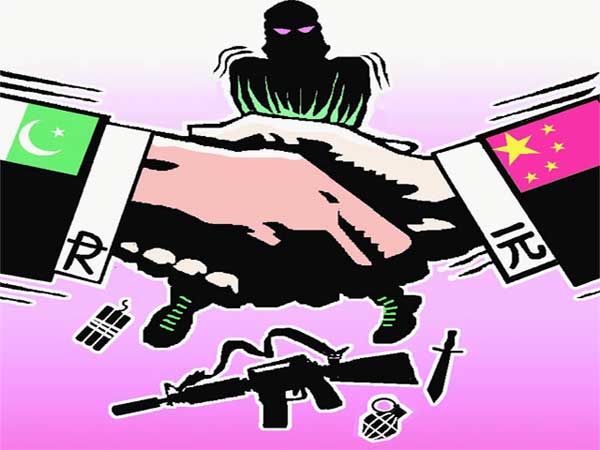
In his letter to Chinese Prime Minister Li Keqiang written in May last year to commemorate 70 years of Sino-Pak friendship, Pakistan’s Prime Minister Imran Khan mentioned how “Our time-tested relationship is built around lasting values of mutual respect, mutual trust, and mutual understanding.” But just two months later, when a bus carrying Chinese workers plunged into a ravine near Dasu hydropower plant in Pakistan’s Khyber Pakhtunkhwa Province killing 10 and injuring 26 Chinese nationals, the “mutual respect, mutual trust, and mutual understanding” which Khan appeared so sanguine about, came in for some very serious questioning.
Pakistan’s Foreign Office statement on this incident read- “This morning a bus carrying Chinese workers in Khyber Pakhtunkhwa Province, plunged into a ravine after a mechanical failure resulting in leakage of gas that caused a blast.” However, a Chinese foreign ministry spokesperson outrightly rejected the “mechanical failure” claim and instead maintained that it was an “attack..”. Pakistan’s Information and Broadcasting Minister Fawad Chaudhry toed Beijing’s line by announcing that traces of explosives had been found in the debris due to which the terrorism angle couldn’t be ruled out.
So, when a joint investigation by Chinese and Pakistani officials concluded that this incident was indeed a “terrorist attack,” no one was the least surprised. Nor did anyone believe Pakistani Foreign Minister Shah Mehmood Qureshi assertion that Tehreek-e-Taliban [TTP] for this suicide bombing, or the “nexus of Indian RAW [Research and Analysis Wing, India’s spy agency] and Afghan NDS [National Directorate of Security, intelligence agency of the Ashraf Ghani Government]” for three reasons.
Firstly, by mid-July last year, the fall of Kabul was imminent. So, at that time while Indian diplomatic staff was preoccupied planning their own evacuation, NDS (National Directorate of Security) members were deserting ranks and melting into the countryside to avoid capture and retribution by the Taliban. Therefore, having their hands full at that time, it would have been practically impossible for the alleged RAW agents coordinate with them to orchestrate terrorist attacks like the one in Dasu.
Secondly, though Qureshi had echoed Islamabad’s age-old allegation of TTP being sponsored by India and facilitated by the anti-Taliban government in Afghanistan, its accusation lacked credibility. Furthermore, if this was indeed true then after India’s withdrawal of its staff and closure of all its facilities in Afghanistan, coupled with NDS ceasing to exist should have emasculated TTP. However, this didn’t happen and the Afghan Taliban’s takeover of Kabul saw the emergence of a far more belligerent TTP.
Lastly, TTP is a terrorist outfit that has no qualms in accepting responsibility for its attacks- so much so that it even owned-up to the horrific 2014 Army School Peshawar massacre of 134 innocent school children. However, it denied any involvement in so called Dasu suicide attack, which is inexplicable. Terrorist groups take immediate responsibility for suicide attacks as this is seen by their fighters as official recognition of the bomber’s ‘martyrdom’. So, refusing to so is tantamount to assigning the bomber to oblivion, which can act as a demoralising factor for other suicide bombers-something no terrorist group can afford.
Details regarding this incident are confusing. Pakistani media has mentioned that the targeted bus was part of a three-vehicle convoy. According to Reuters, Pakistan’s Deputy Inspector General [DIG] of Counter Terrorism Police, JavedIqbal claimed that “Around 100/120 kgs of high explosive were used in the car bombing.” Now, if this is true then occupants of the other two vehicles would have most certainly seen the suicide bomber’s car smashing into the ill-fated bus. Even if they hadn’t, debris of this car would have been an unambiguous and immediate giveaway that this incident was a suicide bombing, and this raises a very pertinent question- why did the FO claim it was the accident was due to “mechanical failure”?
Secondly, how did the Chinese authorities who were sitting more than 5,000 km away from the desolate incident site in KP be so quick in ascertaining that this incident was a terrorist attack?
Thirdly, how could DIG Iqbal so confidently determine from the remains of the suicide bomber that he wasn’t a Pakistani national? So, it’s absolutely clear that being neck-deep in debt and banking on its “sweeter than honey friendship” with China for continued benevolence, Islamabad has no other choice but to play ball and dance to Beijing’s tune.
However, for Islamabad, what transpired after the Dasu bus incident should be a warning that in today’s world, there is no such thing as a ‘free lunch’. In fact, Beijing’s arm-twisting has already begun. Dasu Hydropower project is being funded by the World Bank and has nothing to do with CPEC. Yet, in what’s clearly a brazen act of applying unwarranted pressure on Pakistan, China cancelled a Joint Coordination Committee CPEC meeting scheduled for July 16. But things didn’t end here. The Chinese contractor working on this project stopped work on the project and demanded a $37 million compensation for the deceased and injured.
Though there are no provisions in the contract agreement on such compensation, providing financial assistance to the families of the deceased and those injured is a noble humanitarian gesture that merits due appreciation. However, when a contractor demands a whopping amount that’s 500 times more than the domestic compensation rates in China, while Islamabad’s “all weather friend” Beijing maintains a stoic silence, then alarm bells should have started ringing. So, while Pakistani media is trying to downplay Islamabad’s decision to pay this hefty compensation in order to preserve bilateral ties, this could well be an indication that Beijing’s honeymoon with Islamabad may be getting over.
But wait and watch- the game has just begun!




